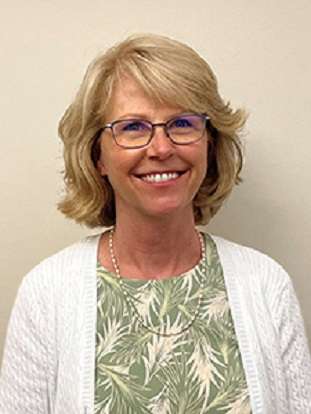China transfer station committee debates use of RFID tags
 by Mary Grow
by Mary Grow
China Transfer Station Committee members spent much of their Nov. 15 meeting talking about whether to continue using RFID (Radio Frequency Identification) tags to separate China and Palermo residents from out-of-town users, or to go back to stickers on vehicles.
The RFID system was started with state grant funding in 2019. The main purpose was to track recycling.
The current system is that a resident gets one free RFID tag and can buy as many more as needed for family or business vehicles, for $10 each. People who move out of town in theory return their tags; that doesn’t always happen, Town Manager Rebecca Hapgood said.
In addition to identifying users as entitled and showing where each vehicle stops inside the transfer station grounds, the system provides statistics on such things as busiest and least busy times and how often the same tag comes in.
To protect personal privacy, tags are not associated with tag-holders’ names for these purposes. As a result, transfer station attendants know for sure that someone with a tag is a resident only when they recognize the person.
Onsite transfer station supervisor Tom Maraggio asked if town office staff could notify transfer station staff when someone moves away. With about 200 deeds being processed every month, Hapgood said, staff members don’t have time.
Her main problems, with which committee members sympathized, are that people move away and continue to use the China transfer station, and residents lend RFID tags to non-residents. China taxpayers therefore end up paying to get rid of out-of-town waste; they’re getting “gypped”, in committee chairman Paul Lucas’ opinion.
“The problem is we’ve lost control over who can use the transfer station,” Palermo representative Robert Kurek summarized.
Chris Diesch, Palermo’s other representative, asked how big the problem is. Her question led to discussion of ways to give attendants limited access to the town office list connecting tags with people, so they could do random checks.
Committee members cited three objections to going back to stickers. Some people object to putting stickers on their vehicles; changing the system again so soon would make town officials look silly, in Kurek’s opinion; and Maraggio said depending on where they’re affixed, stickers are often harder for attendants to see than an RFID tag dangling from the rearview mirror.
The discussion ended with Diesch, a computer expert, and Lucas agreeing to meet and see what additional uses they can make of the RFID system.
The problem of improper disposal also plagues the Free for the Taking building, building manager Karen Hatch said. Intended as a swap shop where people can leave usable household items they no longer need, it too often acquires unusable items, including furniture and other bulky items for which the transfer station charges fees.
Discussion led to consensus that people leaving such items – the list is on the China website, www.china.govoffice.com, and posted at the transfer station – should pay the fees, even if the items go into the Free for the Taking area. If the previous owner is still on the premises when someone else claims an item, the fee might be refunded.
Transfer station staff pointed out that with winter coming, items too large to be displayed inside the building will have to be rejected anyway.
Lucas repeatedly returned to a suggestion made at earlier meetings that a guard shack be installed at the transfer station gate, where an attendant could direct people to proper disposal areas and collect fees as needed. No one else followed up.
In other business, Maraggio and Director of Public Services Shawn Reed proposed a custom-made liftable metal cover for the pre-crusher.
Reed said the new loader, to be shared by public works and transfer station crews, is here. He hopes the snow-pusher attachment will arrive in a week or so.
Maraggio plans to update the transfer station five-year plan. Briefly-mentioned potential recommendations include replacing the mixed waste hopper, which Reed said has been repeatedly repaired; buying a closed container to store mattresses, of which Maraggio said he gets about 10 a week; and installing a proper lighting system in the Free for the Taking building.
Maraggio said work is going smoothly at the moment. Each transfer station employee has a specialty, but all are cross-trained and able to assist each other. Relocating a cardboard bin near the mixed waste hopper has improved traffic flow.
Hapgood reported receiving many compliments on Maraggio’s Halloween decorations at the station entrance.
Committee members scheduled their next meeting for 9 a.m., Tuesday, Dec. 20, in the town office meeting room.
China town office, transfer station closed Nov. 24-25
The China town office and transfer station will be closed Thursday, Nov. 24, and Friday, Nov. 25, for the Thanksgiving holiday. On Saturday, Nov. 26, both will be open as usual, the town office from 8 to 11 a.m. and the transfer station from 7 a.m. to 3 p.m.









